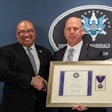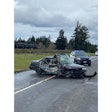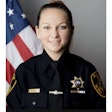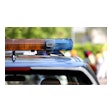In every issue this year, we will publish a thoroughly researched feature on some aspect of American law enforcement and how it affects the lives and careers of our readers. Our goal is not to provide you with a quick snapshot, but a detailed portrait of American law enforcement in 2008.
Leading off our 13-part series, "The State of American Law Enforcement," is an examination of the recruitment and retention issues that have resulted in a shortage of cops. This is an immensely important subject, and we hope that we've done it justice.
Even though our first feature in this series, "The Thinning Blue Line," is about 3,000 words long, it could have been much longer. And invariably, certain of our findings were left out or glossed over so that we could compress the story to its given length.
One of the most important aspects of this topic that we just didn't have room for in the article was a discussion of how the job of a patrol officer is held in low esteem by the public and by some law enforcement administrators. Consequently,
morale has hit new lows in the patrol ranks of some departments. Which is sad, because patrol is the core task of any police department.
Six years ago when I first came to work at POLICE, I interviewed a National Guard officer who was commanding a detail standing watch in local airport terminals in order to reassure a jittery flying public still rattled by 9/11. The commander was a light colonel in the Guard. He was also a patrol officer in a Southern California police department.
At the time I was surprised that this man wasn't something more than a "lowly" patrol officer. Shame on me. And shame on anyone else in this country who would describe a patrol officer as "lowly."
Civilians and even some law enforcement brass have a tendency to judge the value of an officer by his or her rank. Our attitude is that if you work patrol, then you must be stupid. We equate it with being a buck private in the Army.
But no veteran patrol officer should be treated like a buck private. A good patrol officer is a mediator, a psychologist, a lawyer, a teacher, a social worker…and yeah, when all else fails, an ultimate fighting champion. Good patrol officers are the most critical link in the thin blue line that protects society from chaos.
Many enforcement agencies have done a great job of making veteran patrol officers feel appreciated. This is a good thing for the officers, the agencies, and the communities that they serve because it doesn't require an officer to get off the streets just to get a raise.
Any law enforcement administrator who wants to improve morale and retain his or her patrol officers should ask the following question: "Does this agency value its patrol officers? If so, how does it show that it values its patrol officers?" I assure you that if you don't make your patrol officers feel appreciated, there are many sheriffs and chiefs who are ready to do so.














